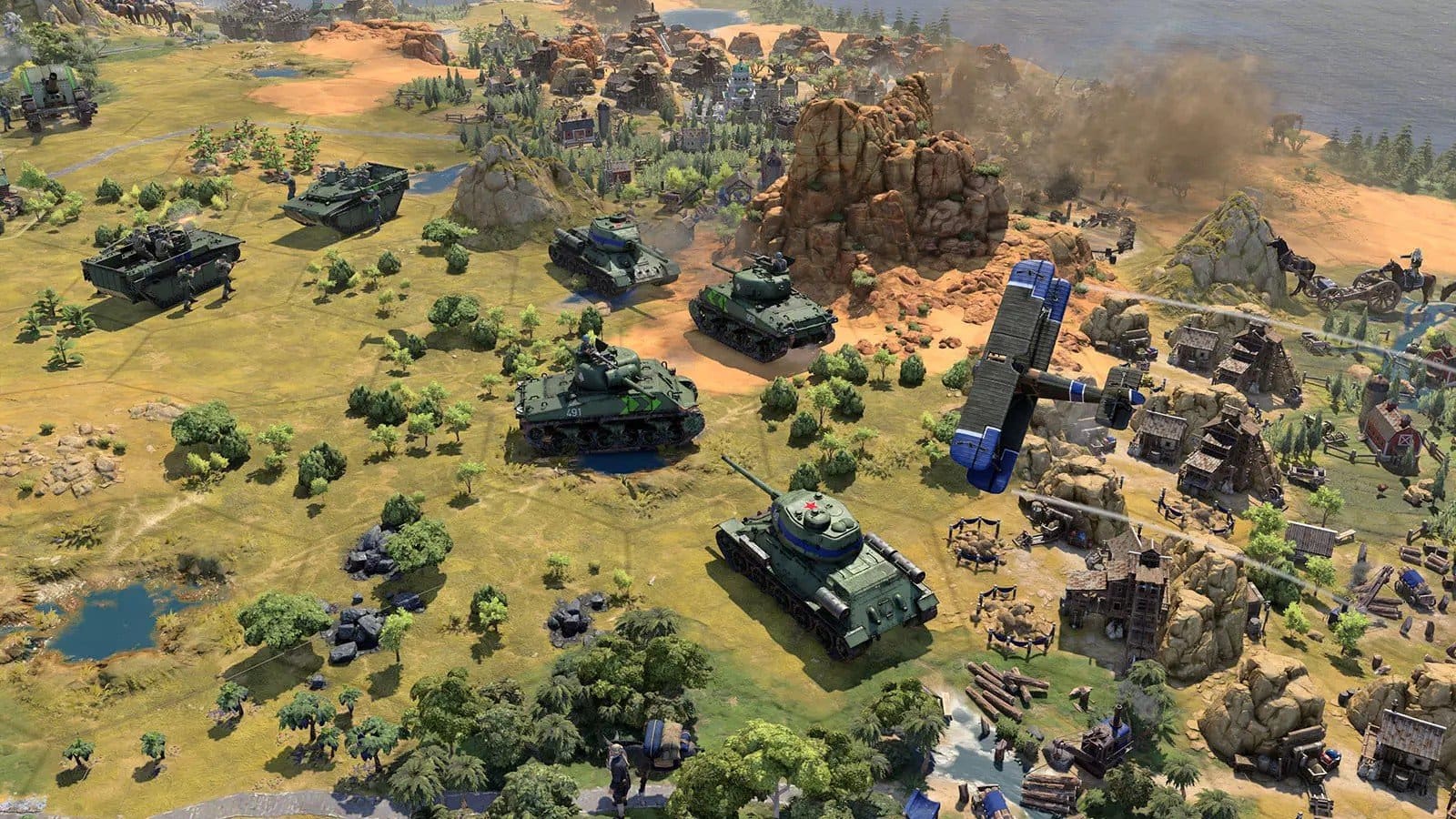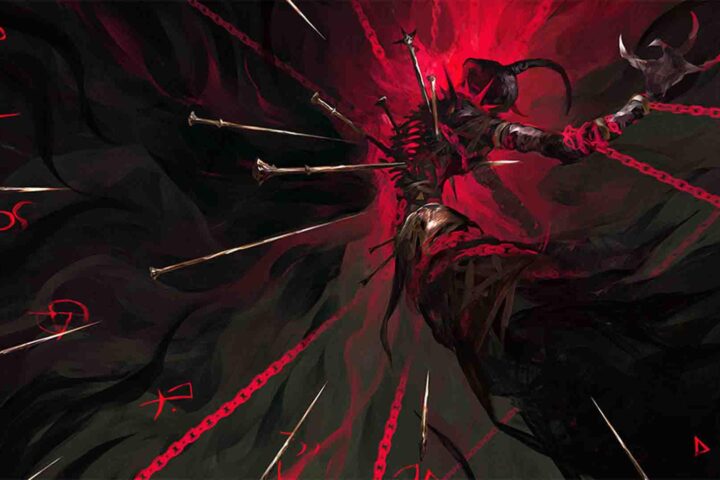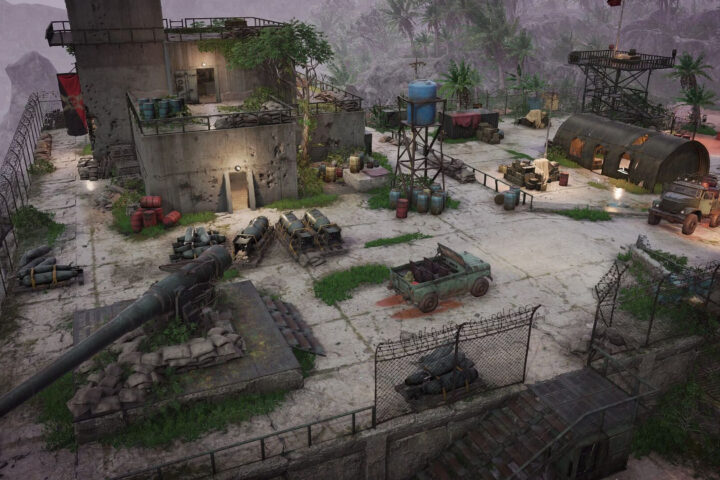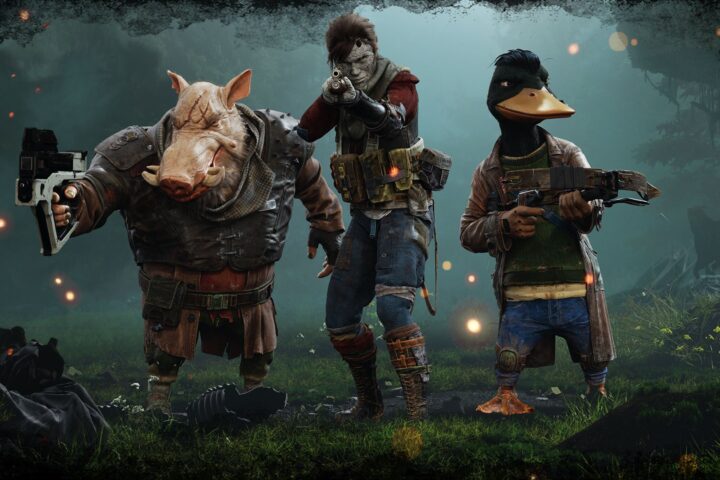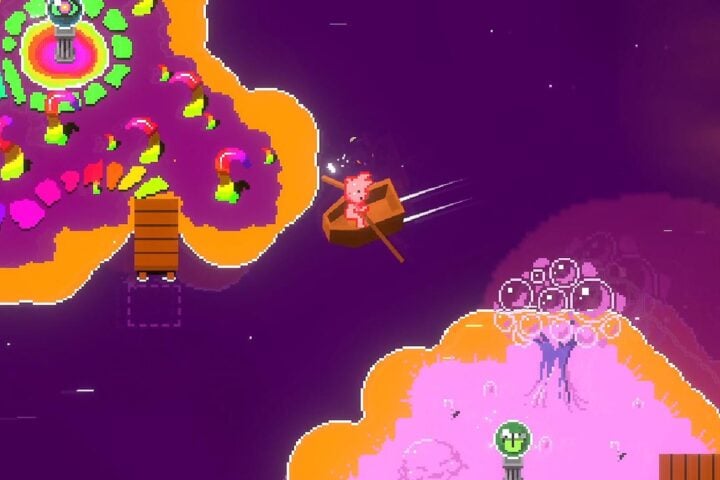Firaxis’s Civilization games have always been much more fun to start than they are to finish. In the early hours, every little decision carves out space for your burgeoning empire. But as you spend thousands of in-game years amassing settlements, combat units, and technologies, what should be a nail-biting climax more often becomes a morass of busywork. All those decisions snowball into something far too big and unwieldy to steer.
Civilization VII marks the strongest attempt yet to re-energize the baggier sections of a Civ match. Rather than one long haul, the game is now split into three distinct eras—the antiquity age, the exploration age, and the modern age—that each function like smaller, more compact matches of their own. It’s a risky yet perceptive change, among others that are meant to make the acclaimed series more immediate and approachable. Unfortunately, these changes come with a host of brand-new issues that make the first Civilization game in nearly a decade feel, at best, like it still has a ways to go—and, at worst, like it’s not quite fully baked.
The ages system doesn’t supplant the historical leaders who are the face of the franchise. You’re still choosing an animated, immortal figurehead like Benjamin Franklin or Napoleon Bonaparte, but you now change the nations they lead between ages. Franklin might start out as Greece in antiquity, swap to Spain for the exploration age, and then close out the modern age as America.
Each age transition retains settlements and some combat units but otherwise restarts the process of researching technologies and social policies, with the hopes of recapturing that early-game immediacy. There are long-term advantages to be gained from age-specific “legacy paths” where you might, say, harvest resources in the New World once the exploration era ushers in navigable oceans. Otherwise, though, the game is able to rebalance the playing field like never before, imposing brand-new goals and rulesets for each competing empire to incorporate.
There’s an obvious desire here to trim extraneous mechanics and streamline the game without losing the franchise’s core identity. You can see it, too, in smart tweaks to the combat system that use commander units to order around multiple units at once. But it’s tough to shake the sense that Civilization VII’s aspirations are in conflict with one another: It wants to streamline at the same time as it wants to fight late-game stagnation, and the only way to fight stagnation is to re-complicate the game with even more details to keep straight.

Admittedly, the preponderance of stuff is the whole appeal of the series. Like its predecessors, Civilization VII is good at getting you to play one more turn, and that’s because you’re always on the verge of producing a new unit, researching a new technology, or capturing a new settlement. But so many of the additions only make the game harder to parse at a glance.
The settlements are now busy with indistinguishable buildings, and you no longer have an immediate grasp of what Napoleon can get up to because rather than just France, he might be leading any number of distinct nations with unique advantages that you have to research. Elsewhere, resources will suddenly need to be managed differently in a new age, and old buildings will suddenly have different yields from when you constructed them.
These wouldn’t be insurmountable problems with the right level of guidance, but Civilization VII also suffers from a truly calamitous interface. The menus where you spend the majority of your time are clunky and disorganized even when they’re providing useful information—and they’re often doing no such thing. You can’t cleanly sort lists, can’t see why or how a city is disconnected from the rest of the empire, and can’t reference what structures do after you’ve built them without manually typing their names into the in-game Civilopedia. The list goes on.
Historically, Civilization games have been iterated on for years after their release, and many of these issues are so glaring that it’s tough to imagine they’ll go wholly unaddressed. But as of this writing, it’s hard to overstate just how frustrating this lack of information and organization is in the game’s current form, where it’s impossible to separate the variables you’re not supposed to worry about from the variables that the game simply fails to explain very well—if at all.
Even among more complex mechanical failings like the mind-numbing repetition of its awful religion system, the greatest flaw of Civilization VII is simply how bad it is at communicating with the player. If it’s still capable of sucking you in for hours on end, this latest entry in the storied franchise too often feels like a game that’s engaging in spite of itself.
This game was reviewed with a code provided by FINN Partners on February 7.
Since 2001, we've brought you uncompromising, candid takes on the world of film, music, television, video games, theater, and more. Independently owned and operated publications like Slant have been hit hard in recent years, but we’re committed to keeping our content free and accessible—meaning no paywalls or fees.
If you like what we do, please consider subscribing to our Patreon or making a donation.

